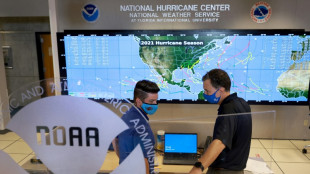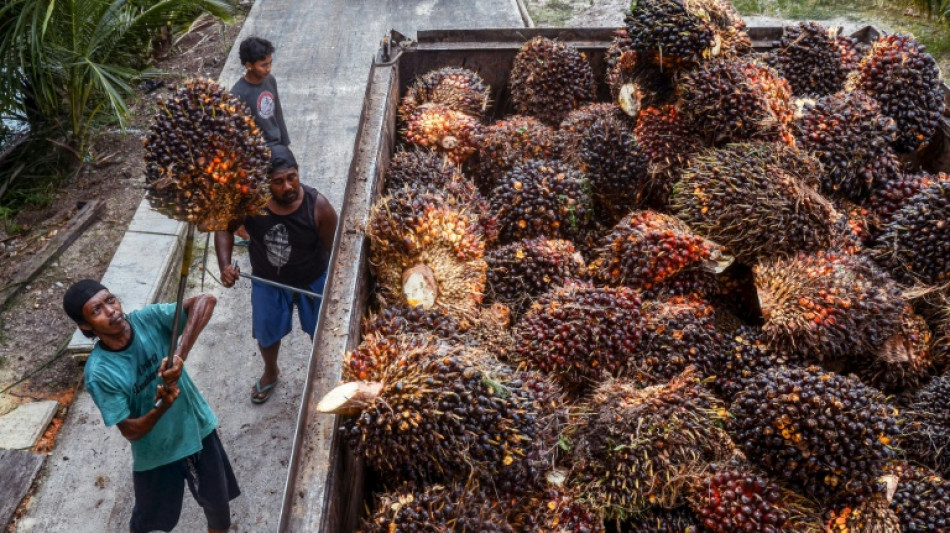
-
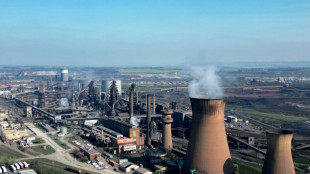 UK govt races against time to keep steel furnaces running
UK govt races against time to keep steel furnaces running
-
Meta faces landmark US antitrust trial

-
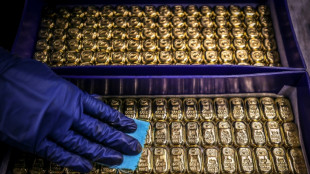 Stocks rise on electronics tariffs exemption, gold hits new high
Stocks rise on electronics tariffs exemption, gold hits new high
-
Helicopter company that ran deadly New York tour shuts down

-
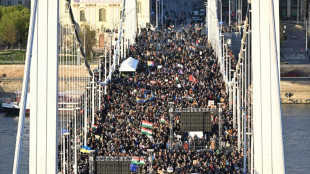 Hungary set to restrict constitutional rights in 'Easter cleanup'
Hungary set to restrict constitutional rights in 'Easter cleanup'
-
Post Malone primed to close out Coachella

-
 Katy Perry set to roar into space on all-female flight
Katy Perry set to roar into space on all-female flight
-
Xi warns protectionism 'leads nowhere' as he arrives in Vietnam
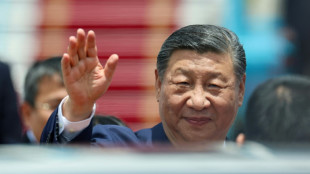
-
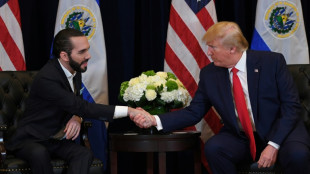 Trump hosts El Salvador's Bukele, key ally in anti-migrant push
Trump hosts El Salvador's Bukele, key ally in anti-migrant push
-
Trump spotlight divides S.Africa's Afrikaners
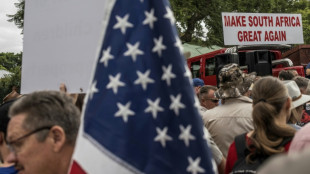
-
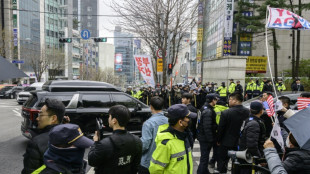 South Korea's ex-president denies insurrection at criminal trial
South Korea's ex-president denies insurrection at criminal trial
-
World leaders slam deadly Russian strike on Ukraine

-
 Chinese exports soared in March ahead of Trump's 'Liberation Day'
Chinese exports soared in March ahead of Trump's 'Liberation Day'
-
'We can get it' - Emery eyes Champions League comeback against PSG

-
 Perfect Piastri puts McLaren in driving seat
Perfect Piastri puts McLaren in driving seat
-
Flick has Barcelona on cusp of return to European elite

-
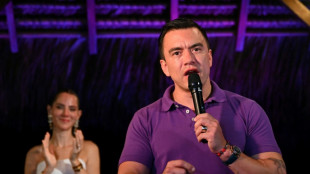 Noboa wins Ecuador presidential runoff, rival claims fraud
Noboa wins Ecuador presidential runoff, rival claims fraud
-
China's exports beat forecast in March despite trade war woes

-
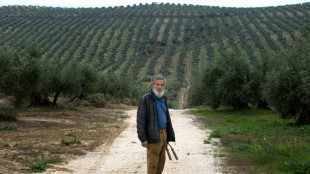 Solar park boom threatens Spain's centuries-old olive trees
Solar park boom threatens Spain's centuries-old olive trees
-
Trump tariff rollercoaster complicates ECB rate call
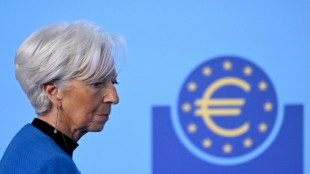
-
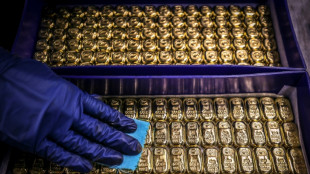 Asian stocks rise on electronics tariffs exemption, gold hits new high
Asian stocks rise on electronics tariffs exemption, gold hits new high
-
South Korea's ex-president attends first day of criminal trial
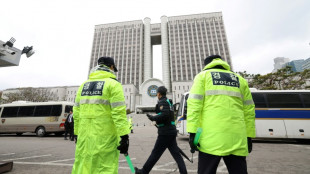
-
 Nobel Literature Prize winner Mario Vargas Llosa dies in Peru
Nobel Literature Prize winner Mario Vargas Llosa dies in Peru
-
A coffin for Pol Pot's memory, 50 years after Phnom Penh's fall
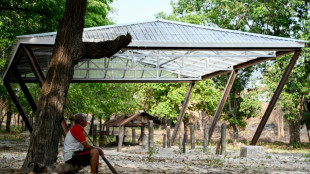
-
 McIlroy in no mood to talk on the way to Masters win: DeChambeau
McIlroy in no mood to talk on the way to Masters win: DeChambeau
-
Vargas Llosa, last of Latin America's literary golden generation
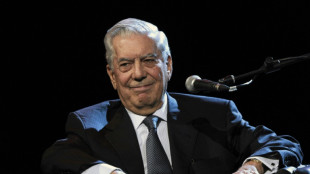
-
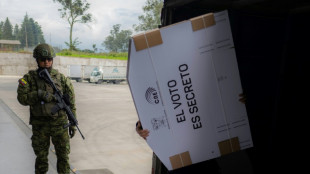 Incumbent Noboa wins Ecuador presidential runoff
Incumbent Noboa wins Ecuador presidential runoff
-
Rollercoaster carries McIlroy to Masters glory at last

-
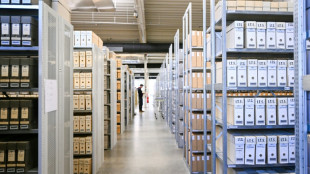 German archive where victims of the Nazis come back to life
German archive where victims of the Nazis come back to life
-
From deadly rave to recovery: Israeli study examines MDMA's effect on trauma
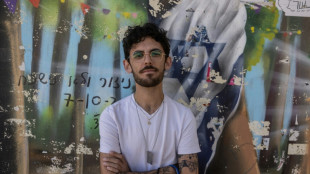
-
 McIlroy rides luck of the Irish to overcome Masters
McIlroy rides luck of the Irish to overcome Masters
-
Xi warns protectionism 'leads nowhere' as starts SE Asia tour
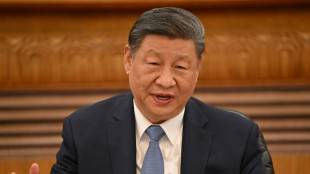
-
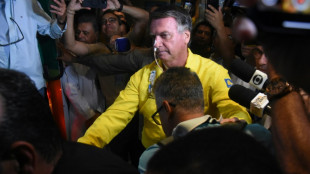 Brazil ex-president Bolsonaro surgery ends 'with success'
Brazil ex-president Bolsonaro surgery ends 'with success'
-
Ten birdies not enough as Rose falls to McIlroy in Masters playoff

-
 Post Malone and Megan Thee Stallion primed to close out Coachella
Post Malone and Megan Thee Stallion primed to close out Coachella
-
Zelensky urges Trump to visit Ukraine to see war devastation: CBS
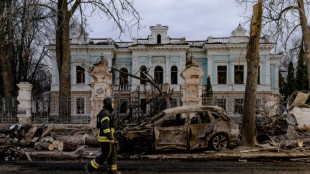
-
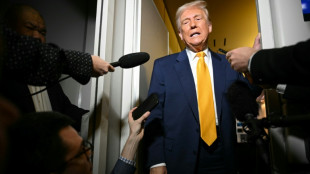 Trump warns no country 'off the hook' on tariffs
Trump warns no country 'off the hook' on tariffs
-
Incumbent Noboa leads Ecuador presidential runoff
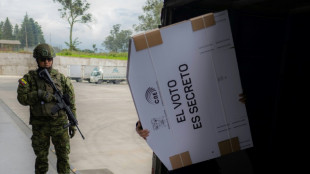
-
 McIlroy completes career Grand Slam with emotional Masters playoff win
McIlroy completes career Grand Slam with emotional Masters playoff win
-
Harden bags 39 as Clippers edge Warriors to clinch play-off spot

-
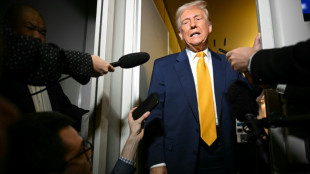 Trump downplays tariffs walk-back, says no country 'off the hook'
Trump downplays tariffs walk-back, says no country 'off the hook'
-
Polls close in Ecuador's razor-tight presidential runoff
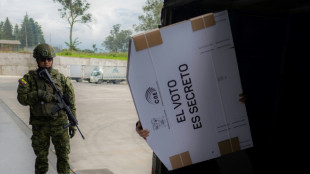
-
 USA, Japan win to qualify for BJK Cup finals
USA, Japan win to qualify for BJK Cup finals
-
Russian missile strike on Ukraine city kills 34
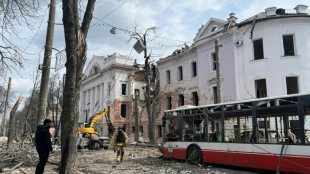
-
 Lyon close in on Champions League, Saint-Etienne snatch draw
Lyon close in on Champions League, Saint-Etienne snatch draw
-
McIlroy leads by four as Masters back-nine battle begins

-
 Lazio and Roma share derby spoils as Atalanta relaunch Champions League bid
Lazio and Roma share derby spoils as Atalanta relaunch Champions League bid
-
Children's show 'Yo Gabba Gabba!' takes Coachella by storm

-
 Fabio Grosso's Sassuolo return to Serie A after a year away
Fabio Grosso's Sassuolo return to Serie A after a year away
-
Red Bull reflect on 'bad' Bahrain weekend


Indonesia palm oil firms eye new markets as US trade war casts shadow
Indonesian palm oil companies are seeking new markets in Europe, Africa and the Middle East as they try to protect themselves from the impact of Donald Trump's trade war, a top industry executive told AFP.
Indonesia is the world's biggest producer of the edible oil -- used in making foods such as cakes, chocolate, and margarine as well as cosmetics, soap and shampoo -- and accounts for more than half the global supply.
But the 32 percent tariffs imposed on the country make it one of Asia's hardest hit by the US president's sweeping measures that have sent shockwaves around the world.
Palm oil is one of Indonesia's biggest exports to the United States, and while Trump has announced a 90-day pause on implementing the levies, producers say the uncertainty is forcing them to look elsewhere to earn their keep.
"It actually gives time for us to negotiate... so products can still enter there. I think this is very good," said Eddy Martono, chairman of the Indonesian Palm Oil Association (GAPKI) on Thursday.
However, he warned that market diversification "must still be done" to avoid the impact of the tariffs if they come into force later in the year, adding that firms would look to Africa -- specifically top importer Egypt -- the Middle East, Central Asia and Eastern Europe.
"We should not just depend on traditional markets. We will continue to do it. We have to do that," he said.
Exports of palm oil products to the United States have steadily grown in recent years, with Indonesia shipping 2.5 million tons in 2023, compared with 1.5 million tons in 2020, according to GAPKI data.
Eddy called on Jakarta to keep its dominance in that market through talks, particularly as rival palm oil producer Malaysia was hit with lower tariffs.
"Indonesian palm oil market share in the United States is 89 percent, very high. This is what we must maintain," he said.
According to Indonesian government data, the United States was the fourth-largest importer of palm oil in 2023, behind China, India and Pakistan.
- Smallholder pain -
But Eddy remained confident the US would still need Indonesian palm oil if no deal was sealed when the 90 days are up.
"It is still a necessity for the food industry. I believe our exports to the US will slightly decline or at least stagnate," he said.
"Those who are harmed first are consumers in America because their main food industry products need palm oil."
Indonesian Finance Minister Sri Mulyani said at an economic meeting Tuesday that she would lower a crude palm oil export tax, alleviating some of the pain.
While Eddy welcomed the move, saying it would make Indonesia's palm oil exports more competitive, for the country's 2.5 million palm oil smallholder farmers, the threatened tariffs were worrying.
Mansuetus Darto, the national council chairman of the Palm Oil Farmers Union (SPKS) said the measures would have had a far-reaching impact if a deal wasn't struck.
"The raw material of the palm oil will pile up and then farmers cannot harvest anymore because of overcapacity in existing plants," he said before the pause was announced.
President Prabowo Subianto opted for a path of negotiation with Washington instead of retaliation and will send a high-level delegation later this month.
While Trump took aim at Indonesia's billion-dollar trade surplus with the United States, Prabowo said his threatened levies may have done Indonesia a favour by "forcing" it to be more efficient.
Chief economic minister Airlangga Hartarto also said Jakarta would buy more products such as liquefied natural gas and liquefied petroleum gas to close the gap with the world's biggest economy.
That has given hope to the industry that a deal with Trump can be done, otherwise they will be forced to turn elsewhere.
"There is still time," said Mansuetus after the pause was announced.
"The government should prepare to negotiate as best as possible with the US government."
F.Fehr--VB

